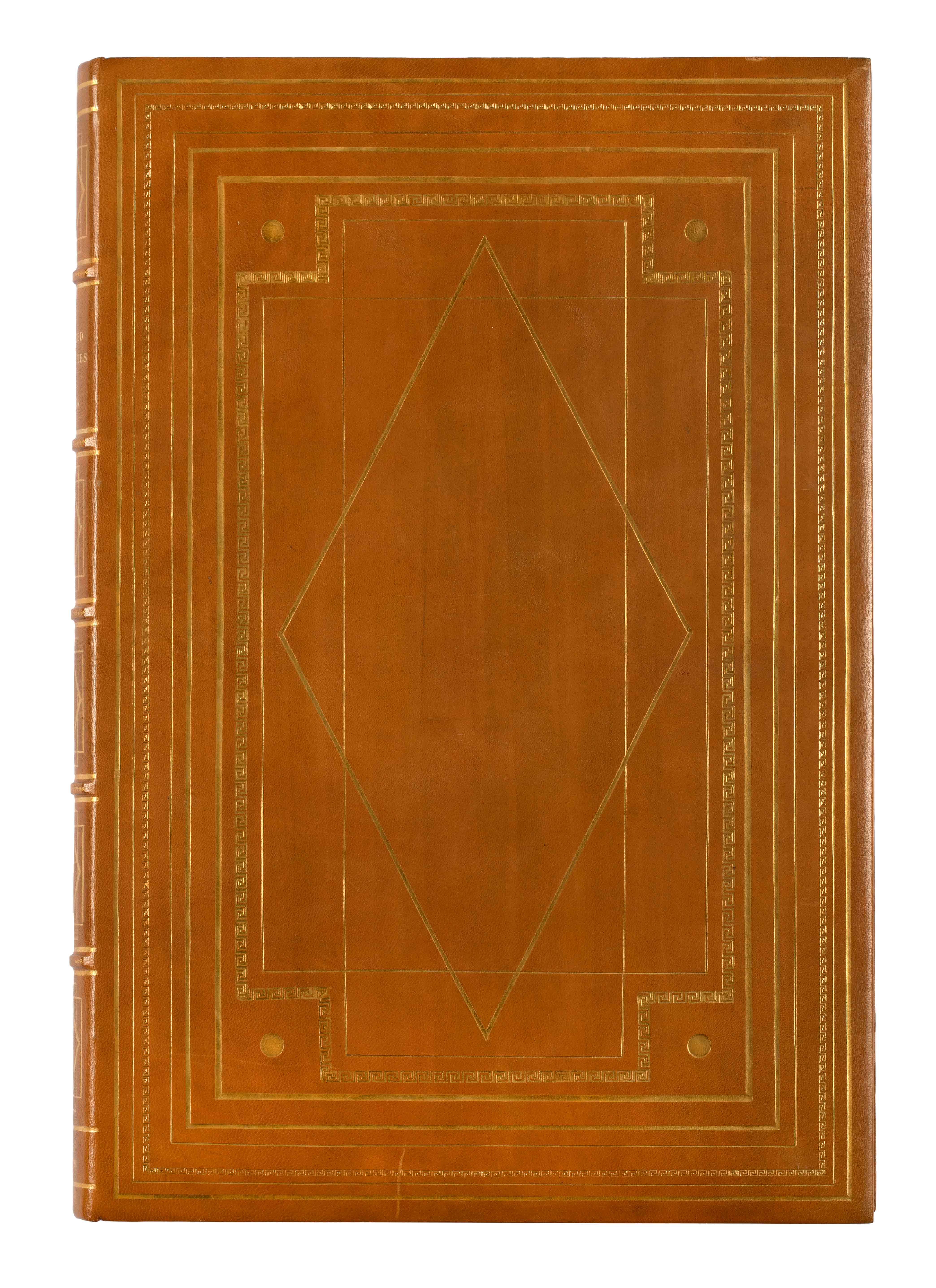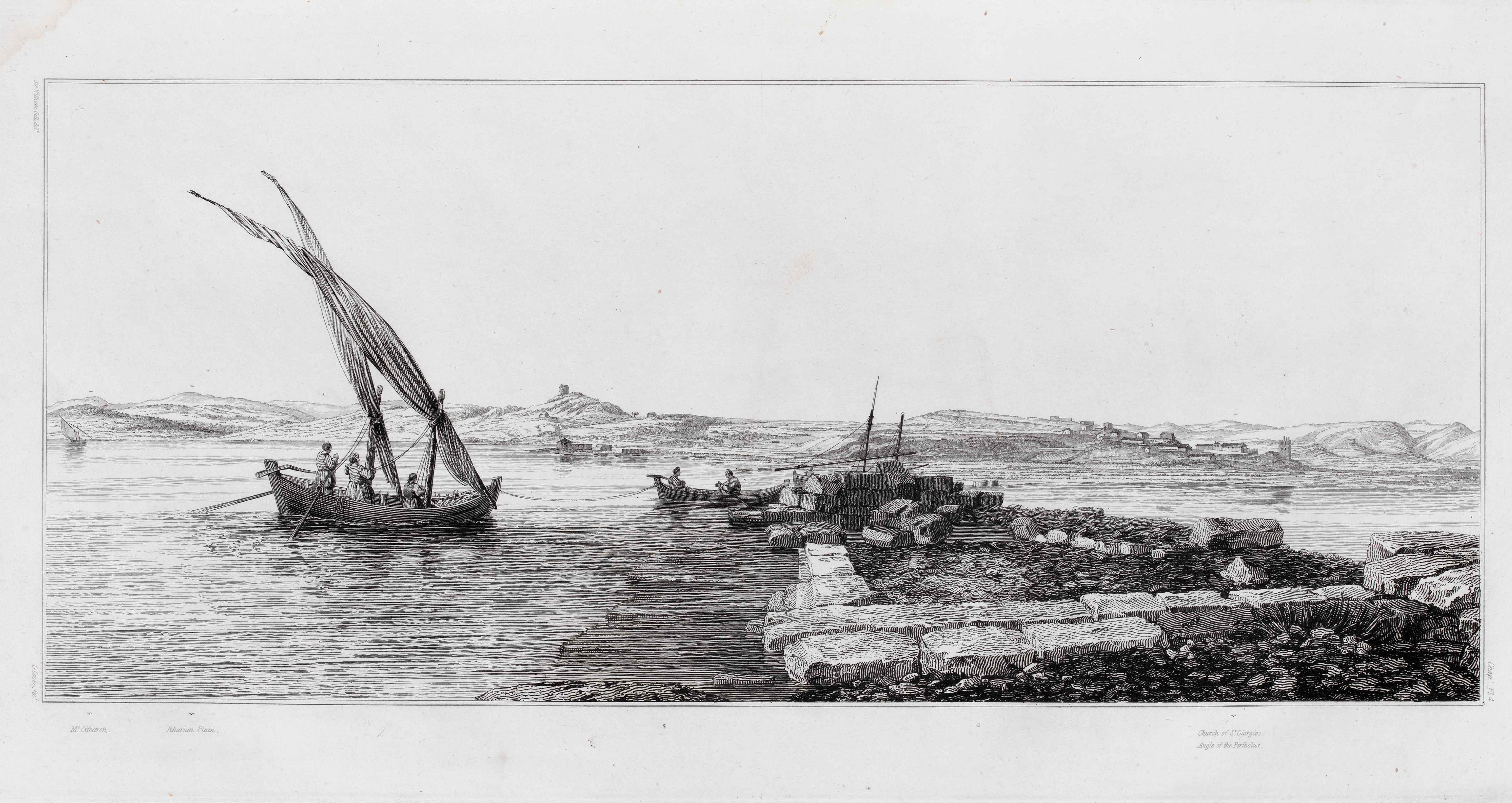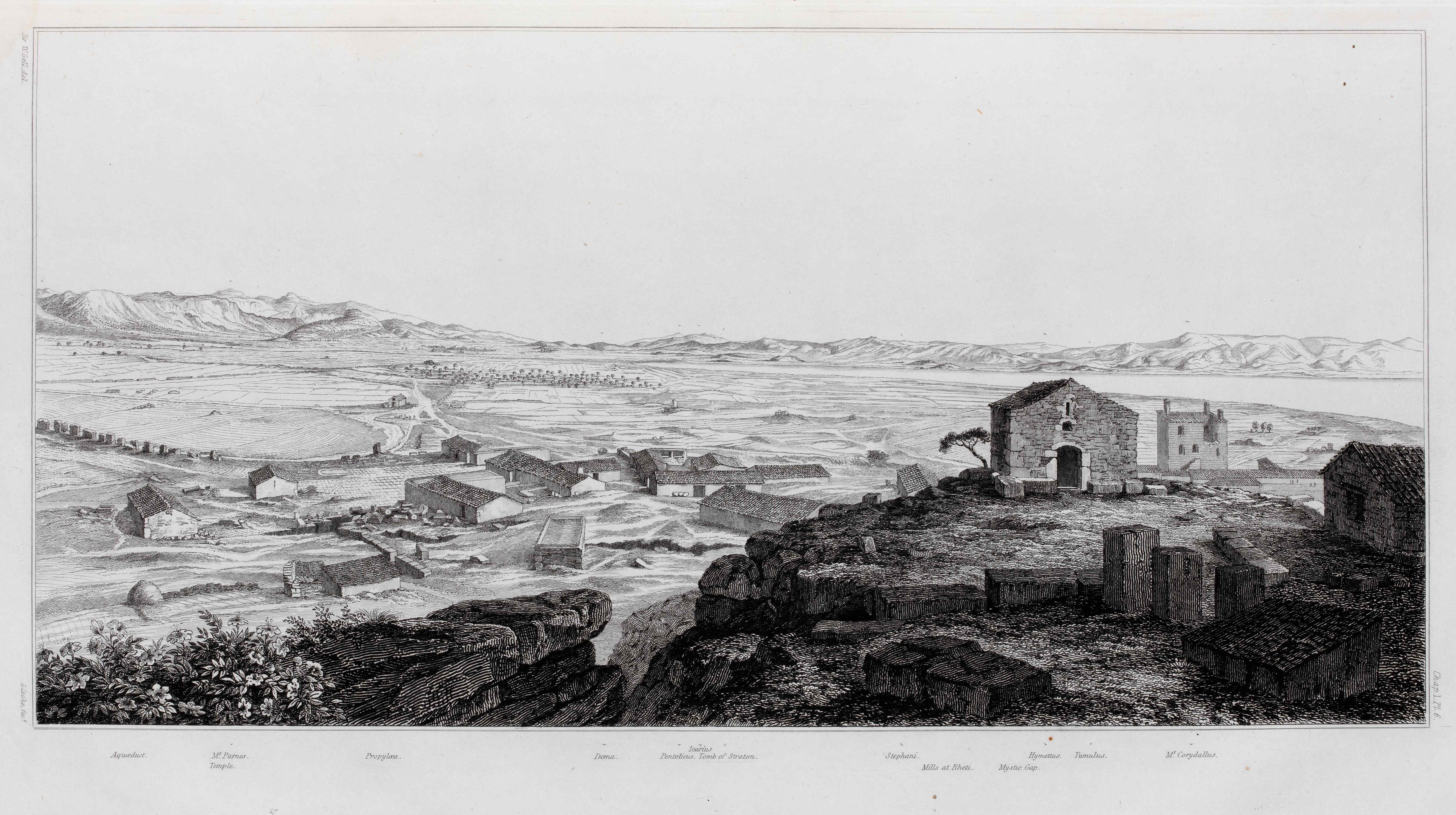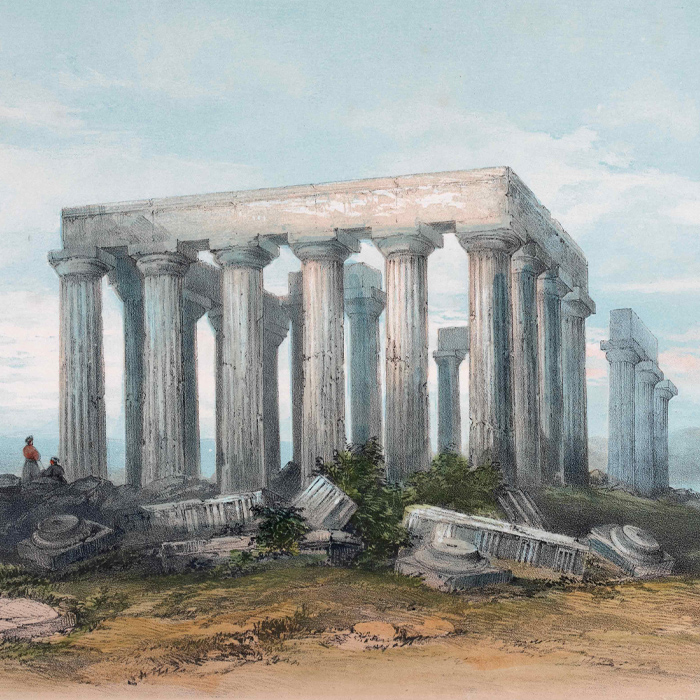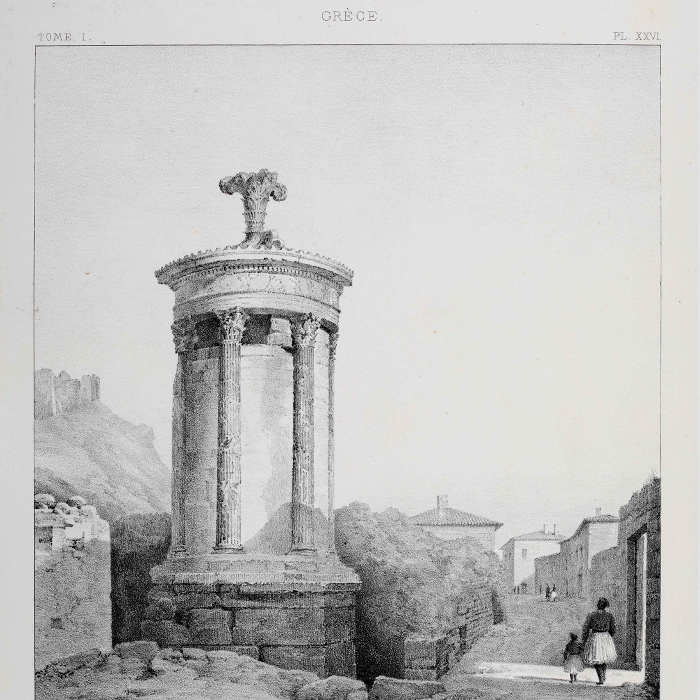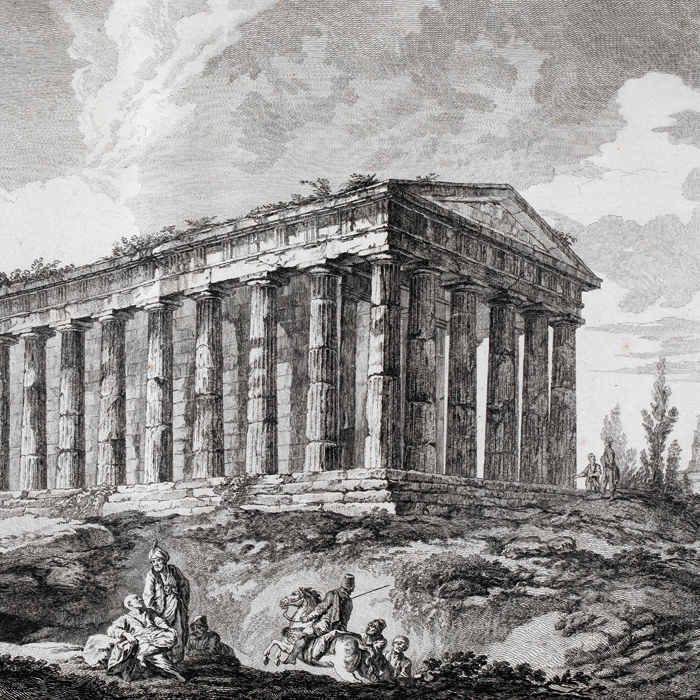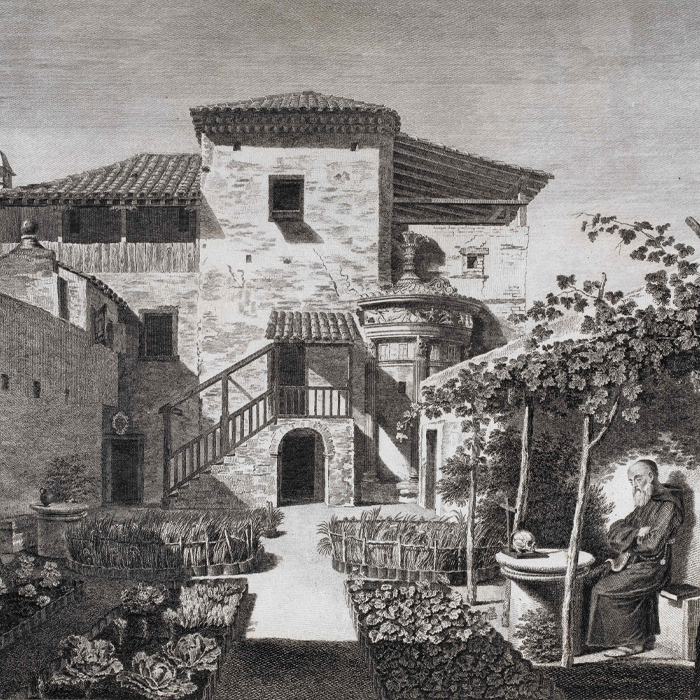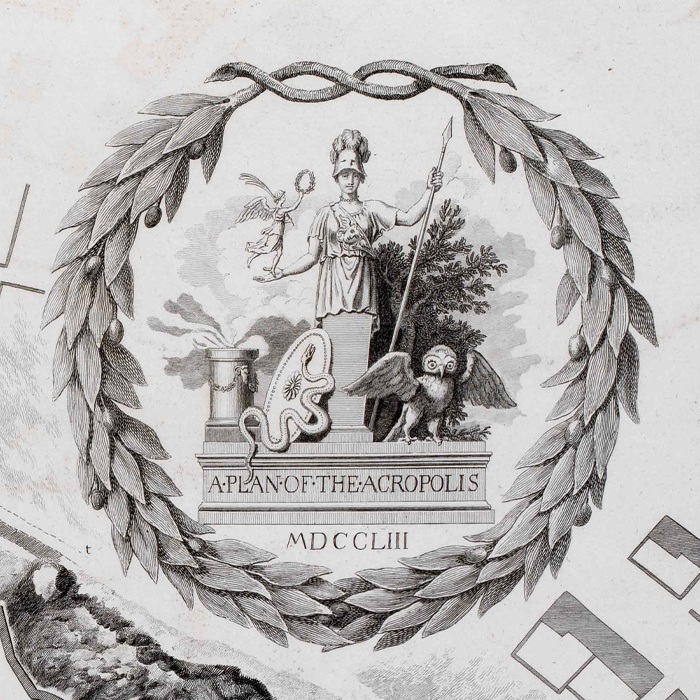The Unedited Antiquities of Attica
The Unedited Antiquities of Attica: Comprising the Architectural Remains of Eleusis, Rhamnus, Sunium, and Thoricus is a touring book. It was published by the historical association, the Society of Dilettanti. It features etchings depicting archaeological sites in Attica: Eleusis, Rhamnus, Sunium and Thoricus. The collection includes rare material of great value from the 19th century.
External appearance and illustrations
The volume The Unedited Antiquities of Attica: Comprising the Architectural Remains of Eleusis, Rhamnus, Sunium, and Thoricus is 35 cm (width) x 53 cm (height). It comprises 59 pages.
It features a number of etchings depicting, among others, the archaeological sites of Eleusis, Rhamnus, Sunium and Thoricus.
The descriptions and representations of the archaeological sites also include monuments, such as the temples of:
- Nemesis.
- Themis.
- Athina of Sunium.
Touring the antiquities of Attica
The book is of archaeological interest, as suggested by the title, The Unedited Antiquities of Attica: Comprising the Architectural Remains of Eleusis, Rhamnus, Sunium, and Thoricus.
It was published in 1817. In its time, it was a valuable volume that contributed to archaeological research. It includes rare and special material from different sites in 19th century Attica.
Society of Dilettanti
The Society of Dilettanti was a British historical society. Their objective was to showcase and study Greek and Roman antiquity.
The society members included collectors, scholars and noblemen. It is believed that the society met for the first time in 1732, whereas its founding year is said to be 1734. However, the exact date of the society founding is unknown.
The archaeological expeditions were sponsored by the contributions of its members, who also sponsored classical style artists.
The Dilettanti publication on the antiquities of the Ionian Island is believed to have influenced the neoclassicism movement in Great Britain.
The Grand Tour
For a long period over the 18th and 19th century, young, wealthy European aristocrats travelled all over Greece. They were accompanied by friends, servants, tutors, doctors, artists and scientists. This type of travelling was called the “Grand Tour”.
In their visits to Greece, the travellers:
- Engaged in nature-watching.
- Admired ancient ruins and monuments.
- Expressed interest in native traditions and behaviours.
- Drew inspiration from Greek philosophy and were charmed by Greek mythology.
Then, the travellers would write an account of their impressions, drawing pictures and paintings of everything they had seen. However, oftentimes they also composed quite complex scientific works.
Sailing into Hellenism
The touring trend proved to be fundamental for the establishment of the modern Greek state. Hellenism, aside from a field of literary and philosophical research, became the means to revive the past. This was owing to:
- The increasingly frequent travels to Greece.
- The new archaeological discoveries.
- The quest for a more substantive and emotional relationship with the Greek present and past.
Ancient Greece: The first port of European history
The Grand Tour began as a quest of a new European identity, based on humanistic education and classical studies. The travellers had a passion for antiquity, and followed in the footsteps of Pausanias, Herodotus, Plinius and others.
Ancient Greeks held a prominent position due to the virtues attributed to them. Moreover, they were the first and most critical link in the 3-part chain, past-present-future, of the European historical continuum.
The various approaches of antiquity were based on the common belief that history is a progressive and cumulative process: The past drives the present towards a better future.
The Alpha Bank Rare Book Collection is not open to the public.
However, you may visit the other collections of the Alpha Bank Library.
